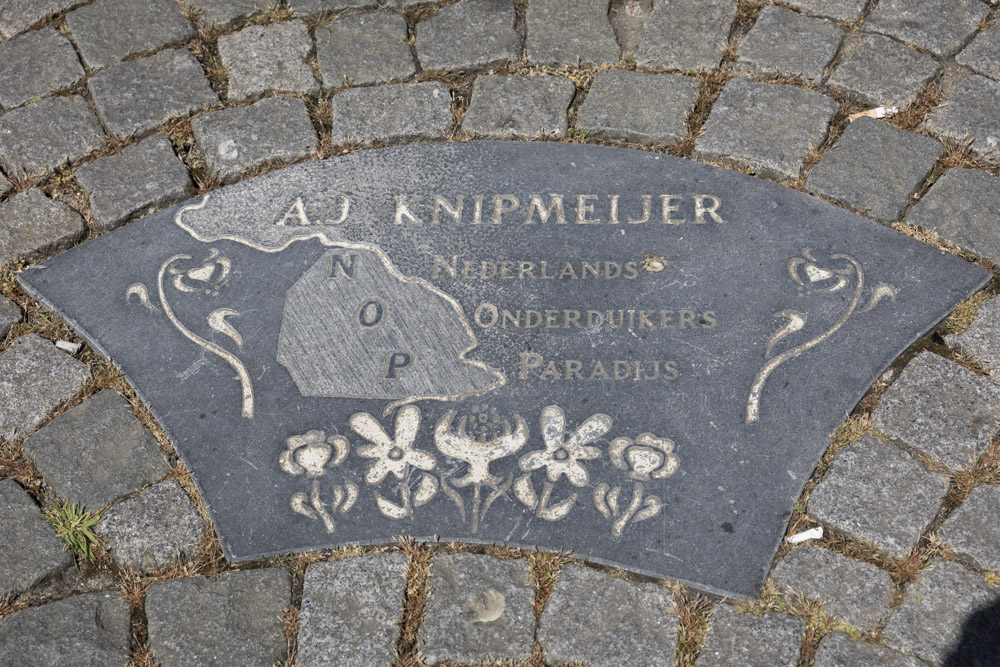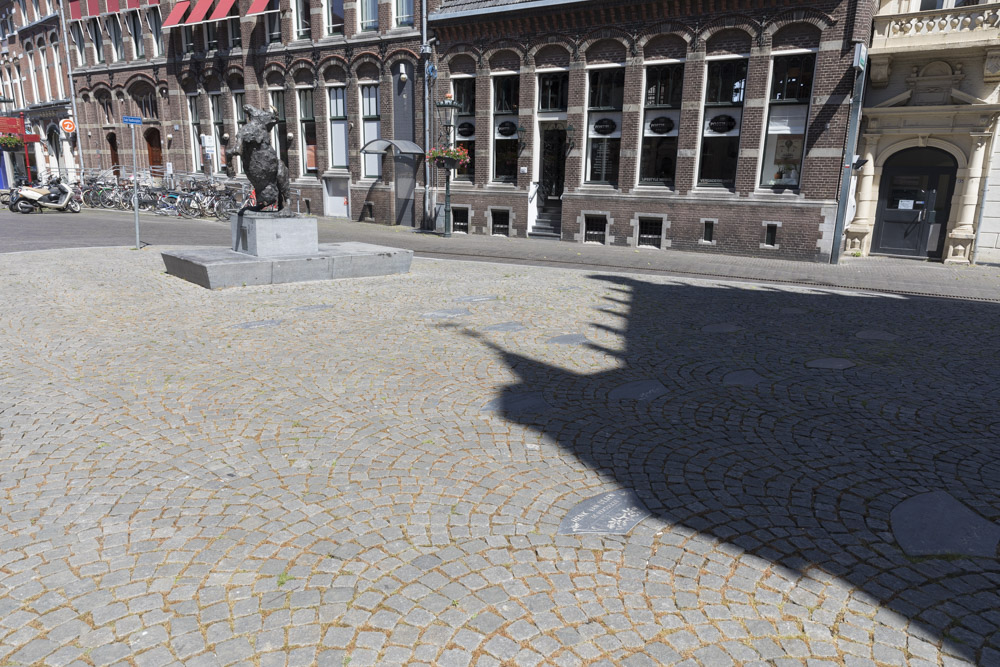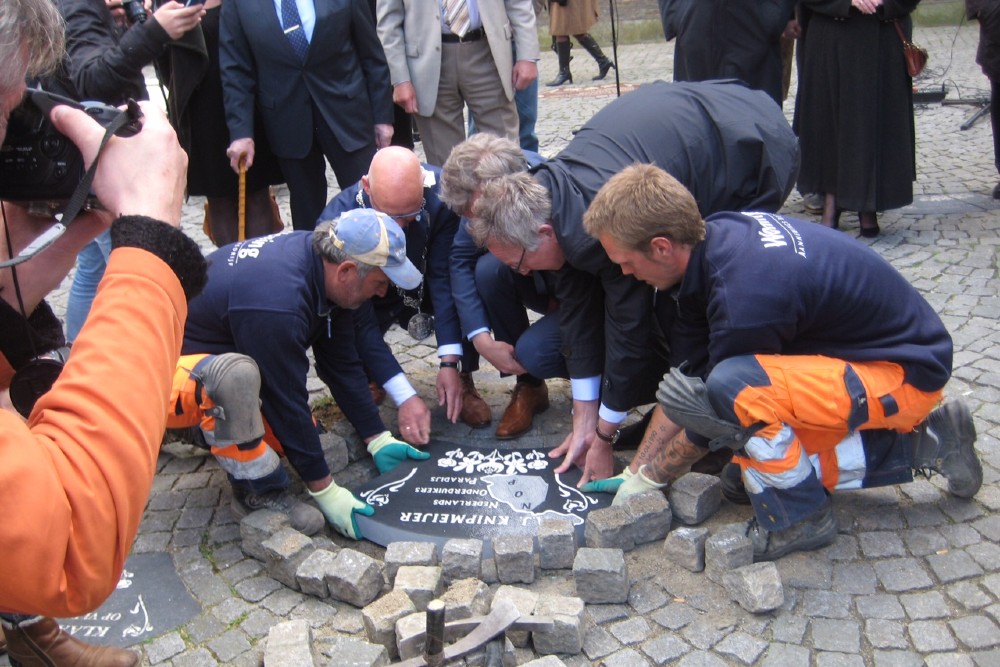Memorial Stone Albert Knipmeijer
The province of Flevoland did not yet exist during the war, but the Noordoostpolder (NOP) did. It had just dried up and many farm workers were needed. They came thanks to Bert Knipmeijer, personnel officer at the Rijksdienst voor de IJsselmeerpolders in Kampen, who went in search of young men who wanted to work in the polder. Not all of these turned out to be farm boys with experience, but also many men who wanted to avoid the Arbeitseinsatz in Germany, and later also men from the Resistance.
Knipmeijer's name was known throughout the Netherlands. And his name is still mentioned in the same breath with the Dutch people in hiding paradise, the nickname that the NOP received.
A memorial stone was laid for him in Kampen.
Photo is of the stone laying in Kampen for Knipmeijer on the Oude Raadhuisplein ("Koepleintje") at 70 years of liberation on April 30, 2015. Stone is being laid by order of the Kamper Press Club (Stichting Steentjes Koeplein Kampen) by v.l.n.r. Mayor Bort Koelewijn (Kampen) and Aucke van der Werff (Noordoostpolder) together with eldest grandson Jan Albert Knipmeijer. They are flanked by two employees of the road-making company Woning.
Do you have more information about this location? Inform us!
Source
- Text: Verstilde Verhalen - Omroep Max & Stichting Steentjes Koeplein Kampen
- Photos: Arjan Vrieze (1, 2), Stichting Steentjes Koeplein Kampen (3)
Nearby
Museum
Point of interest
Monument
- Jewish Memorial Kampen - Kampen
- Monument "Smekende Handen", Kampen - Kampen
- Memorials Executions - Kampen
Cemetery
- Dutch War Graves Roman Catholic Cemetery IJsselmuiden - IJsselmuiden
- Commonwealth War Graves IJsselmuiden - IJsselmuiden
- Dutch War Graves IJsselmuiden - IJsselmuiden
Remembrance Stone
- Stumbling Stone Oudestraat 133 - Kampen
- Stumbling Stones Gasthuisstraat 7 - Kampen
- Stumbling Stone Oudestraat 155 - Kampen







